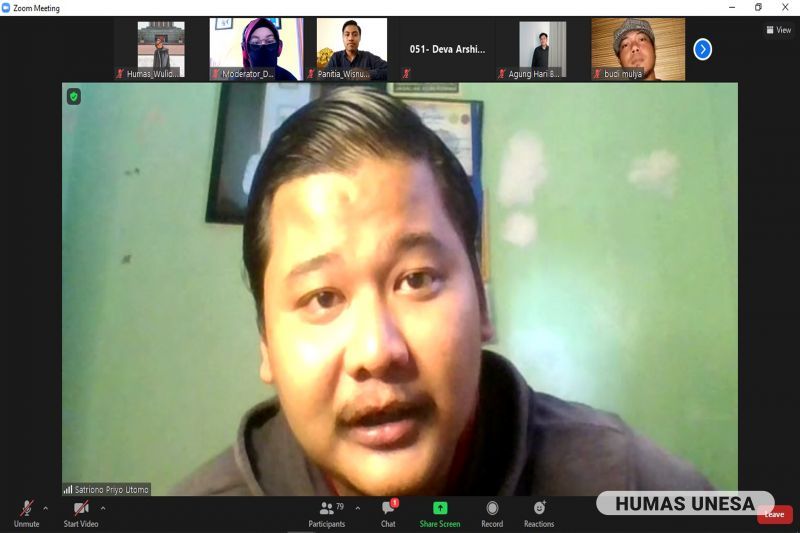
www.unesa.ac.id
Unesa.ac.id, Surabaya - Circle of Social and Cultural Studies, Faculty of Social and Legal Sciences (FISH), State University of Surabaya held a virtual book surgery titled Red Star Illuminating the Third World by Indian historian, Vijay Prashad on Saturday, (06/02/21).
The event which was held via Zoom was attended by 80 participants and three main speakers, namely Wahyu Eka S., Environmental Activist, Dr. Andi Achdian, central administrator of the Indonesian Society of Historians, and Satriono Priyo Utomo, M. Hum., a young historian. As the first speaker, Satriono Priyo Utomo first explained about the red star in the book that can mean spirit, hope or aspiration, and struggle.
He continued that Indonesia's independence in its history could not be separated from struggles, one of which was with Marxism. According to him, the spirit of Marxism can be a "light" of the third world, because it is able to guide, be an inspiration for struggle, as well as explain that colonialism is not something sudden. That is what Vijay explained in detail through his book.
In addition, he explained that the implementation of education in the period 1958-1965 has the motto "Five Love"; love of work, love of the motherland, love of peace, love of science, and love of mother father. "The approach of education at that time has also implemented students centered not teacher centered," he said.
Furthermore, Wahyu Eka asserted that the "shining red star" referred to in the book is a spirit that inspires countries that are experiencing colonialism to fight, and raises the spirit against colonialism and the spirit of nationalism. "The red star is the spirit. In order to be independent, out of the colonial system it takes a spirit of resistance, and it must be expected," he said.
Furthermore, Dr. Andi Achdian as the third resource person began by explaining that the book is indeed a very light and relaxing book to read. Nevertheless, the value and gugahnya strong enough, can be a spirit for young children.
"This book invites us to have a dialogue, so that it can increase our imagination and curiosity," he said. "This book is not a comprehensive study, but a small book with great expectations, which explains the strength of the October Revolution for the emancipation of colonized countries," he concluded.
The event's chief executive, Wahyu Mahendra said that discussion and book surgery activities became one of the ways the Circle of Social and Cultural Studies, FISH Unesa met intellectual and academic needs during the pandemic. Although physical movement is limited due to plague, imagination and knowledge must still be honed and "liberated". "Hopefully young people will be inspired and able to make a good contribution to society and the country," he hoped. (wulida/yam/Humas_Unesa)
Share It On:






